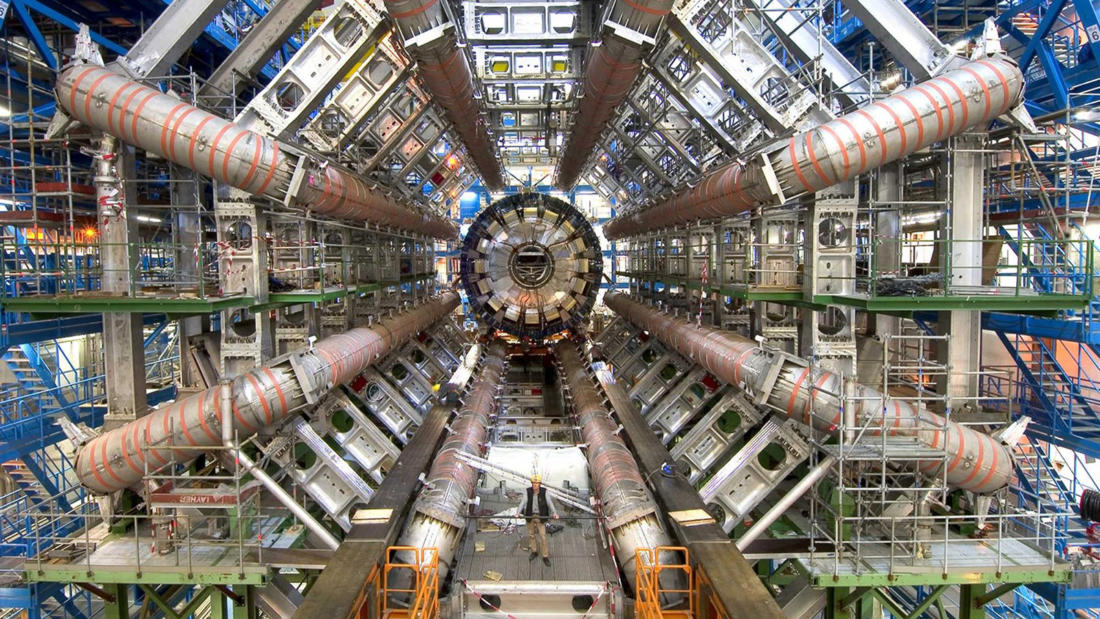
Amherst Cinema Amherst, MA
Dr. Carlo Dallapiccola
Professor of Physics, UMass Amherst
andDr. Ben Brau
Assistant Professor of Physics, University of Massachusetts, Amherst
andDr. Stephane Willocq
Professor of Physics, University of Massachusetts, Amherst
andDr. Sheldon Lee Glashow
Metcalf Professor of Mathematics and Physics, Boston University; Professor of Physics Emeritus, Harvard University
Particle Fever— What can the Large Hadron Collider and the Higgs boson tell us about the universe?
Program Description
A panel discussion of what the Large Hadron Collider and the Higgs boson can tell us about the universe.
Presented At
Amherst Cinema Amherst, MA
Film Synopsis
As the Large Hadron Collider is about to be launched for the first time, physicists are on the cusp of the greatest scientific discovery of all time—or perhaps their greatest failure.
Particle Fever follows six brilliant scientists during the launch of the Large Hadron Collider, marking the start of the biggest and most expensive experiment in the history of the planet, pushing the edge of human innovation. As they seek to unravel the mysteries of the universe, 10,000 scientists from over 100 countries joined forces in pursuit of a single goal: to recreate conditions that existed just moments after the Big Bang and find the Higgs boson, potentially explaining the origin of all matter. But our heroes confront an even bigger challenge: have we reached our limit in understanding why we exist?
About the Speaker
Dr. Carlo Dallapiccola is a professor of physics at the University of Massachusetts, Amherst, and member of the ATLAS collaboration at the Large Hadron Collider (LHC) at CERN in Geneva, Switzerland. His research interests lie in searches for exotic new phenomena in the LHC data. Most recently, he has worked on a search for the production of microscopic black hole states that are predicted in theories that postulate extra dimensions of space. Previously, he led research efforts in the BaBar experiment at the Stanford Linear Accelerator Center (SLAC) to investigate certain aspects of the origin, within the fundamental laws of physics, of the dominance of matter over antimatter in the universe. At UMass he teaches courses for both undergraduate physics majors and for non-majors, covering topics such as cosmology, black holes, and modern physics.
Dr. Ben Brau is an assistant professor of physics at the University of Massachusetts, Amherst, and is a member of the ATLAS collaboration at the Large Hadron Collider at CERN in Geneva, Switzerland. His research focuses on precision measurements of known phenomena, and a search for the possible existence of a hidden sector of particles which could lead to an explanation of dark matter. He has previously been convener of the Fermilab Collider Detector Facility Collaboration’s Exotics Physics Group, which searches for a variety of signals for new phenomena at the Tevatron. At UMass, he has taught a range of courses including an introductory class for non-majors on relativity and an advanced class for physics majors on elementary particle physics.
Dr. Stephane Willocq is a professor of physics at the University of Massachusetts, Amherst. His research interests are in the area of searches for new phenomena at the Large Hadron Collider at CERN in Geneva, Switzerland. He has been a member of the ATLAS experiment for the past 10 years and is currently convening the ATLAS Exotics Physics Group. He has also previously coordinated the software project for the ATLAS Muon Spectrometer as well as the computing and analysis support activities for the US ATLAS collaboration. At UMass, he has mostly taught introductory courses for undergraduates ranging from physics majors to non-science majors.
Dr. Sheldon Lee Glashow was the architect and Nobel prize winner, along with Steven Weinberg and Abdus Salam, of the Standard Model of particle physics, for which the Higgs boson is the cornerstone. He is the Metcalf Professor of Mathematics and Physics at Boston University and Higgins Professor of Physics Emeritus at Harvard University.